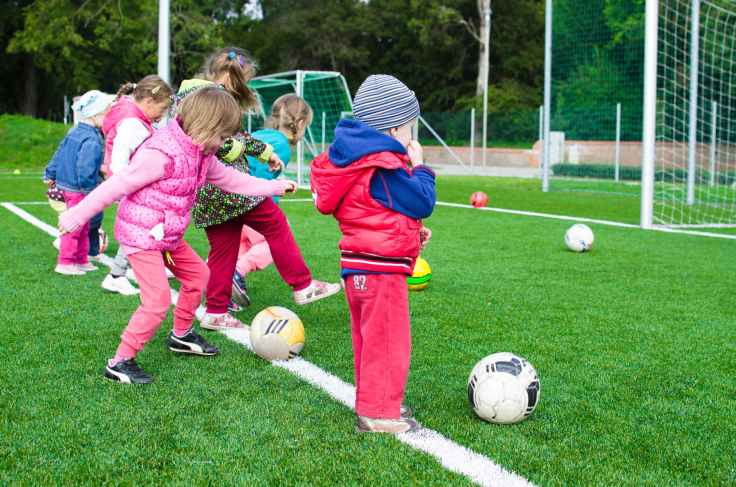Have you ever felt down? Worrying about your next assignments? Worrying about your relationships? Regretting past decisions you made? Scared of the future? Feeling hopeless? Feeling that the life is stuck? Being tired without doing much work? Not having enough motivation to get out the bed? Honestly, I feel most of us have have undergone bad times in our lives, at one point or another. During these times, our brain can sometimes bail us out and we move forward. But sometimes, one bad feeling reinforces others and we are stuck in a downward spiral.
Brain is a powerful organ as we all know. In his book neuroscientist Dr. Alex Korb describes scientifically proven mechanism and practices which can start an upward spiral, doing one good thing for your brain, leading to reinforcement of other good things, culminating in our eventual well being. In his indispensable-for-the-modern-world book, he describes each of the following hacks in detail and providing copious information backed up by references. This is what separates it from so called “self-help” books: Science! I’ll just give an outline and encourage you the get the book!
Exercise

” You will be nearer to Heaven through football than through the study of the Gita (holy Hindu text on Philosophy). These are bold words; but I have to say them, for I love you. I know where the shoe pinches. I have gained a little experience. You will understand the Gita better with your biceps, your muscles, a little stronger.”
-Swami Vivekananda
- Exercise increases brain-derived neurotrophic factor (BDNF) which is like steroids for brain and leads to production of new neurons! You really become more brainy with exercise!
- Exercise can boost serotonin activity, which leads to higher motivation and will power.
- Exercise also boosts Norepinephrine, which helps in concentration and deep thinking.
- Exercise rewards you with dopamine. You guessed it right, as the name suggests, it is a chemical which addiction related things like smoking, drugs etc. produce to give us a high! Exercise can give you the same high, while being much more beneficial with no side-effects!
- Exercise increases blood flow in prefrontal cortex, the part of brain involved in decision-making, leading to better mood and increased energy levels.
- Exercise promotes better sleep, which has other numerous benefits as we’ll discuss later. The upward spiral is in motion!
How to get exercising is the biggest challenge! When we are feeling down, we don’t feel like doing anything. It is good to exercise in the form of sport, having fun with friends. Also joining a class or a group of friends is also useful as peer-pressure and a fixed schedule will keep us going. Goodluck!
Make Decisions
One might laugh and say that the whole root of worry is the decision making. But decisions to help your brain don’t have to be the big ones! Make a meal plan for the week, decide to go grocery shopping, decide to go to the gym, conscious decision making has numerous benefits. “Make a good decision, not the best one”, the author says.
- Decision making engages the prefrontal cortex, and like a muscle being used, it gets stronger and helps you make more rational decisions: the upward spiral! It will enable prefrontal cortex to override more impulsive parts of the brain, helping to create and enforce good habits.
- Clear goal setting (however small and routine) and achieving them gives a boost to dopamine, leading to increased pleasure. Remember how good you feel when you check something off a list?
- Decision making increases confidence and thus reduces worry and anxiety by creating a sense of perceived control in your life (even if things aren’t going that well and you don’t have real control, small tasks you do by volition engages the brain circuits which make you feel that you’re in control!)
Sleep Well

- Hippocampus, part of brain important for creation of new memories, functions properly only with a proper sleep. Hence sleep is essential for learning and memory. If those aspects are well taken care of, your quality of life will improve in other areas as well: the upward spiral!
- Poor sleep quality can lead to reduced endorphins in certain brain regions. Endorphins are important for reducing pain. Hence good sleep is very helpful in chronic pain.
- Sleeping helps clean out the broken used up chemicals in the brain, which is essential for a healthy brain.
For good sleep it is important to maintain a good sleep hygiene.
- Bedroom should be used only for sleeping and devices with bright lights should be turned down close to the sleeping time.
- Melatonin is a chemical helpful in good night’s sleep, and it is released with exposure to bright sunlight, so make sure you get plenty of bright sunlight during the day.
- Consume no caffeine near sleeping hours and avoid large meals just before sleeping.
- Exercise helps in sleeping by producing serotonin which is precursor to melatonin hence helps in a good night’s sleep.
Biofeedback: Hack your brain with your body
Many of the processes of the body are performed unconsciously and autonomously. The brain executes operations in body without us thinking about doing them (one might see it as classical conditioning: hearing the bell for food, dog starts salivating.). Breathing being the most important example. Smiling on seeing something funny, getting scared with a sound and related preparedness of body to fight-or-flight etc. Understanding these processes, one can use them to them to our advantage in reverse and do bodily actions which actually will put brain into executing certain operations!
- The most common and well known biofeedback utilization is in form of breathing. Slowing down the breathing helps one calm down, and taking short bursts of breathing prepares us for action. When overwhelmed, try to focus on your breathing and get it to slow down.
- Body postures: a straight back, a highly held head, a confident stride, an open chest. All of these are associated in the brain with confidence and control and if we get into these postures, brain will actually start processes to make us feel confident and in control. As often said “Fake it till you make it”
- Smiling, even without any reason; tells your brain to be happier. It releases the tensions in the muscles of face and brain associates it with stress relief. Watching good comedy is a good way to engage in this!
- A splash of cold water on face activates vagus nerve, which slows down the heartbeat and hence can be helpful in controlling anxiety and overwhelming situations.
- Music activates a lot of centers of brain: memory (even if passively listening), coordination (as one tries to keep in tune and rhythm while singing along or trying to play an instrument, however badly!) etc. Dancing adds a physical dimension as well. Great for mental health.
- Yoga system actually is a holistic system which includes a whole set of biofeedback for good health, postures, breathing, mindfulness etc. For starting out, doing a “Surya Namaskar” in the morning may not be a bad idea! It incorporates a full body stretch and takes seconds! Make it a habit and as it grows stronger, you’ll get more into Yoga naturally 🙂
(Note: You don’t really need to face Sun to do Surya Namaskar, though it will be nice feeling to do so!)
Be Grateful

When life is going hard, it is hard to think of anything to be grateful. But I remember what my martial arts coach, Sifu Kevin Seaman told me once when I asked him what to respond to a common US greeting “How’s it going?” when I’m having a terrible time. He told me that one should always reply “Good!” because you’re there to answer him, still alive, a whole world of possibilities still exist!
- Gratitude activates the dopamine circuit, leading to pleasant feelings.
- Gratitude boosts serotonin (a root chemical for melatonin, remember the one responsible for sleep?) which helps in better sleep and as mentioned in exercise section, helps with will power and motivation.
One doesn’t have to necessarily find a lot of things to be grateful, even the mere process of looking for things to be grateful can activate the above brain circuits. Being grateful is just a matter of emotional intelligence!
I have of course skipped a lot of important details. Many useful practical tips and tricks included in the book and even some complete chapters. But if you find any of the above scientifically sound and helpful, the book “The Upward Spiral” is highly recommended!

This was a short, crisp and great read!
I especially liked the part about replying with a “good!” to how you’re doing and being grateful for being there to answer the question!
LikeLike